
IMAD-PhAN
Monell center-Philadelphie-USA
In 2022, Dr. Vincent Paille received support from our Foundation to develop his project on the gut-brain axis as a visiting scientist and to establish a new international collaboration with Guillaume de Lartigue, one of the world’s leading researchers in the gut-vagus nerve-brain axis, at the prestigious Monell Chemical Senses Center in Philadelphia, USA.
This fruitful collaboration resulted in a publication in the esteemed journal Cell Metabolism (McDougle et al., 2024), in which the Foundation is acknowledged. It also led to the securing of two projects coordinated by Vincent Paille: funding from INRAE in 2023 for the ORION project (€400,000), and an ANR grant in 2024 for the GARpe project (€800,000), carried out in collaboration with the American team and the INSERM TENS laboratory.

IMAD-INSERM TENS
Université Mc Gill -Montréal-Canada
In 2023, Nicolas Chapelle received support from our Foundation to, on one hand, develop the methodology and gain the experience necessary to establish screening and management recommendations for digestive cancers with Quebec-based experts, including Prof. Alan Barkun, McGill University and Chair of the Colorectal Cancer Screening Committee at the Quebec Ministry of Health; Prof. Charles Ménard, University of Sherbrooke and member of the same committee; and Ms. Myriam Martel, PhD, Division of Gastroenterology, McGill University (Canada).
On the other hand, his mobility aimed to enhance the training of gastroenterologists in digestive endoscopy through the development of an e-learning teaching module.

IMAD-INSERM TENS
Mont Sinaï Hospital-New York-USA
In 2024, Catherine Le Berre received support from our Foundation to link the Nantes CELESTE cohort with the cohort already developed by the Mount Sinai Hospital team, internationally recognized for its expertise and excellence in IBD research.
The CELESTE cohort consists of IBD patients with longitudinal follow-up and an associated biobank, aiming to improve the understanding of pathophysiological processes in IBD through cellular and molecular analyses. In collaboration with this team, Jérôme Martin (UMR 1064) previously identified a distinct immunopathological module in certain Crohn’s disease patients associated with anti-TNF treatment resistance, leading to a high-profile publication in Cell in 2019.
This Nantes–New York collaboration will be further strengthened by Catherine Le Berre’s mobility at Mount Sinai Hospital from June 2025 to June 2026, providing IMAD with a unique opportunity to consolidate its international research presence.
During this mobility, particular attention will be given to studying phenotypic differences between ulcerative colitis and Crohn’s disease, distinguishing between small bowel and colonic Crohn’s disease — two entities that appear significantly different, given the lower therapeutic efficacy observed in the small intestine regardless of the treatment used.
The SantéDige Foundation enables the initiation of clinical and fundamental research projects, a support that is crucial for both researchers and clinicians. All disciplines covered by the Institute benefit from this backing.
+55 projects funded since 2015
Some examples of recent projects:
VEBAC Project
The VEBAC project, led by Dr. Odile Tresse from UMR 1280 PhAN, was selected this year by the SantéDige Board of Directors to support fundamental research for two early-career researchers: Anaïs Halbert (PhD) and Dr. Hajar Yaakoub (postdoctoral fellow).
The VEBAC project is based on the concept of the Developmental Origins of Health and Disease (DOHaD), which posits that the first 1,000 days of life lay the foundation for the child’s future health and that of the adult-to-be. This period is critical for the maturation of essential physiological systems, including the central nervous system, the immune system, and the digestive system.
Recent discoveries have shown that extracellular vesicles (EVs) from the gut microbiota play a role in mediating communication between bacteria and the host, contributing to intestinal homeostasis, immune responses, and protection against pathogens.
This project aims to study extracellular vesicles (EVs) produced by primary colonizing gut bacteria to identify their role in establishing the symbiosis between the gut microbiota and humans during the postnatal period.
The project’s objectives include funding studies to characterize the vesicular content of these bacteria, the functions associated with these EVs, and their fate within the organism.
NEO-TOCC Project
Led by Prof. Emilie Duchalais
Colon cancer (CC) is the fourth most common cancer worldwide and the fifth leading cause of cancer-related death. Over 70% of CC cases are diagnosed at a non-metastatic stage (NMCC), allowing curative treatment through complete tumor resection. However, prognosis for NMCC patients is closely linked to the risk of postoperative recurrence. Adjuvant chemotherapy is used in high-risk cases to reduce recurrence, but its current benefit on 5-year overall survival remains limited, benefiting only 30% of patients. Perioperative chemotherapy has been proposed to improve outcomes, but results are mixed, partly due to the difficulty in predicting tumor chemosensitivity.
Recent advances in 3D culture technologies have led to the development of a novel CC research model based on patient-derived tumor organoids (tumoroids). While tumoroids have shown promise in predicting clinical responses to chemotherapy and radiotherapy in metastatic and locally advanced rectal cancer, their predictive value in high-risk NMCC patients remains less explored.
Establishing a correlation between tumoroid chemosensitivity and objective chemotherapy response in NMCC patients is challenging due to the absence of the tumor during adjuvant chemotherapy administration. Therefore, this project aims to evaluate the predictive value of tumoroids obtained from pre-neoadjuvant chemotherapy biopsies in NMCC patients.
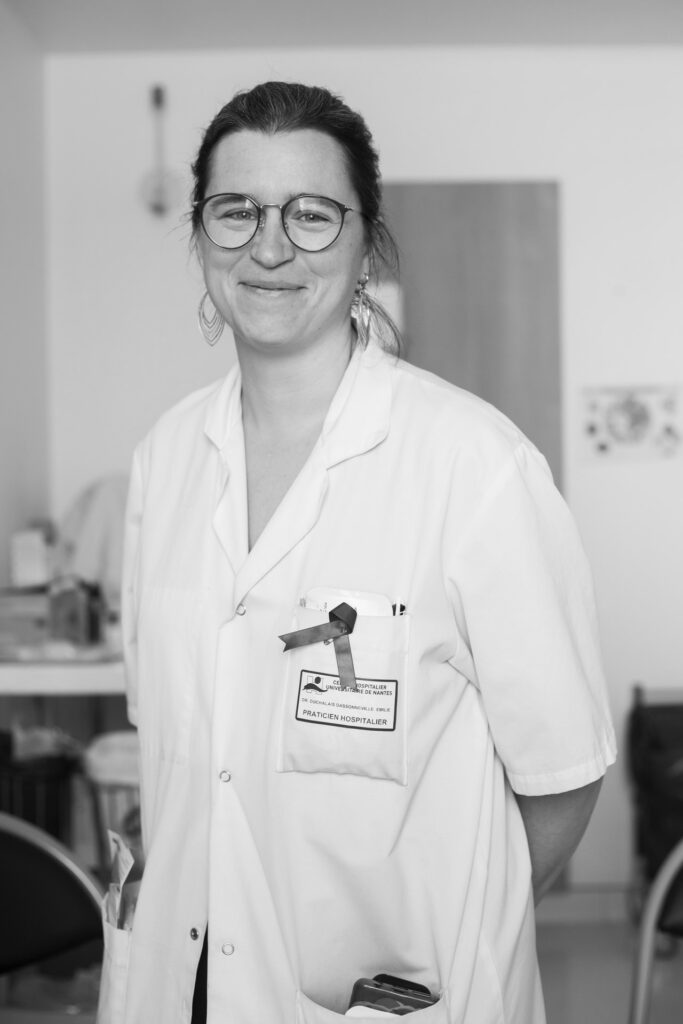
ENDOMIC Project
In 2023, gynecologist-obstetrician Claire Cardaillac, then a PhD student at INSERM TENS, received support from the Foundation for her fundamental and translational research project on endometriosis.
This complex condition, which affects approximately 1 in 10 women, primarily causes debilitating pain, infertility, and functional disorders of the pelvic organs. Among these disorders, gastrointestinal symptoms, including visceral pain, play a significant role. However, to date, these symptoms have been poorly characterized despite their severe impact on women’s quality of life.
In this context, Dr. Cardaillac’s ENDOMIC project aims to better characterize the digestive disorders experienced by these patients, analyze the composition of their gut microbiota, and study its impact on digestive function. The ultimate goal is to identify new treatments and/or improve current patient care.
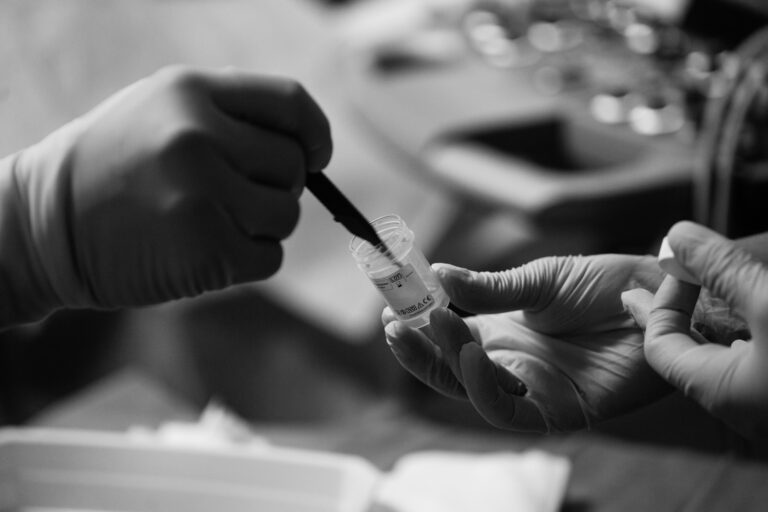
CELESTE Project
Led by Dr. Catherine Le Berre
Emerging in the 20th century, inflammatory bowel diseases (IBD) are chronic conditions characterized by progressive destruction of the digestive tract by the patient’s own immune system. Most often diagnosed in children and young adults, these diseases affect over 200,000 people in France and are accompanied by symptoms that significantly impact daily, personal, and professional life.
Over the past 15 years, fundamental and translational research has led to major advances in understanding the mechanisms behind digestive damage and to the emergence of new medications that have revolutionized disease management.
However, IBD remains incurable, and a major challenge is to better characterize, at the molecular and cellular level, the heterogeneity of pathological immune mechanisms observed among patients with similar symptoms.
The CELESTE clinical research project aims to address this challenge. It is offered to IBD patients followed at IMAD, Jules Verne Clinic (Nantes), and Confluent Clinic (Nantes). The project will be conducted in collaboration with various IMAD research teams and, more broadly, with the teams of the IBD-NExT cluster.
A biocollection of blood samples, digestive biopsies, and surgical tissue fragments will be established as part of patient follow-up. The IBD-NExT research group will rely on this biocollection to develop its project on “health of the future.”
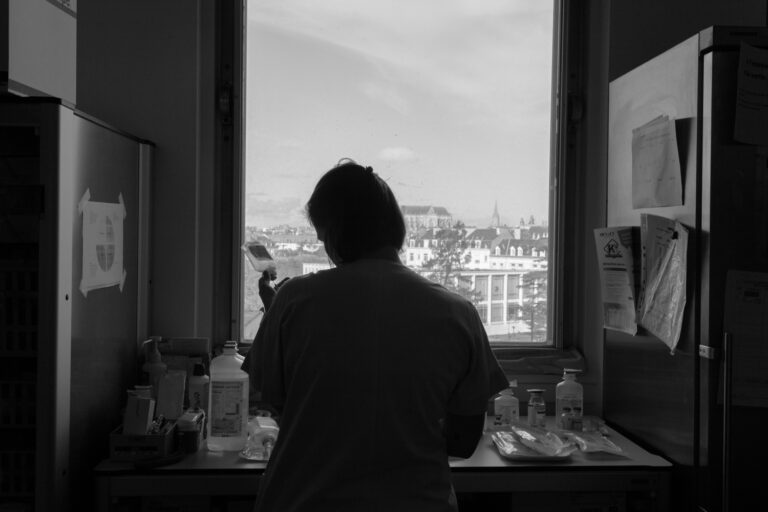
“Sailing with Crohn” Project
Led by Pierre-Louis Attwell
As a child, Pierre-Louis Attwell dreamed of sea adventures and offshore racing. At the age of 16, he was diagnosed with a chronic inflammatory bowel disease (IBD). After initially considering his Crohn’s disease a taboo, and with the support of the patient association AFA CROHN RCH FRANCE, Pierre-Louis chose to give his life the meaning he wanted and turn his passion into his profession.
He decided to become a sailor and to carry the message that “even with illness, everything is possible!” In 2017, with support from his first partners, Pierre-Louis launched his project “Sailing with Crohn.” A year later, he competed in the legendary Solitaire du Figaro. In 2019, he participated in the Normandy Channel Challenge and the Transat Jacques Vabre. In 2022, he took part in the Route du Rhum, embarking on a “Sick Adventure,” which he documented in a film showing the behind-the-scenes of his physical, technical, and medical preparation alongside the IMAD teams.
In 2023, the Foundation supported the distribution of his film “A Sick Adventure” in numerous cinemas across France.
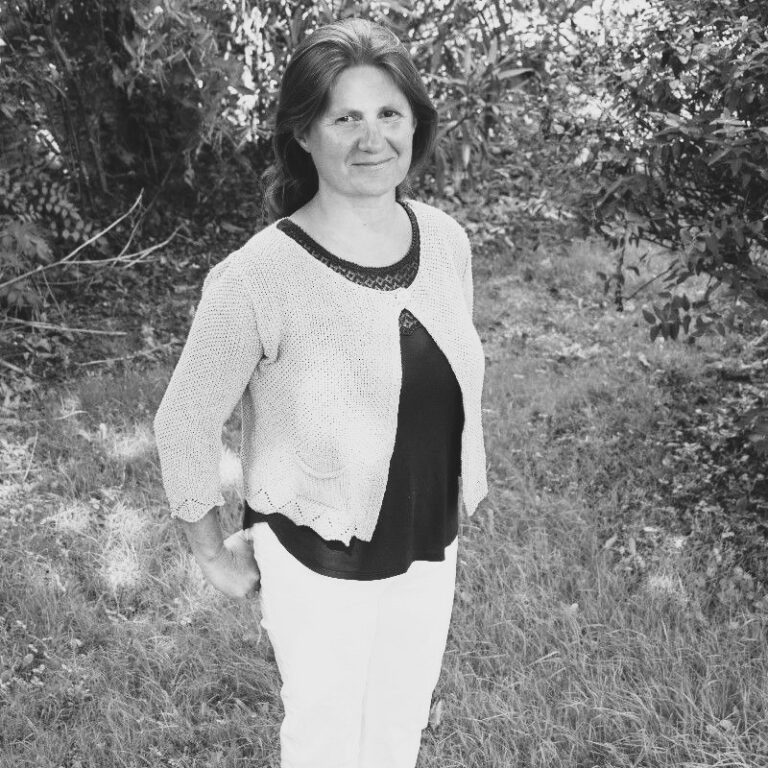
Hospital Biography Project
Led by Isabelle de Gentil-Baichis
In 2024, the Board of Directors of the SantéDige Foundation was presented with a remarkable project proposed by Elisabeth de Gentil-Baichis, professional biographer.
The hospital biography allows a seriously ill person, hospitalized in a care facility or at home, to share their life story with a professional biographer who is fully integrated into the care team. The patient, or a designated relative, then receives a bound book containing the narrative of their life, free of charge.
The benefits of a hospital biography are numerous: for patients, it provides a valuable testimony of their existence; for families, it serves as a gift that can aid in coping with grief; and for caregivers, it offers a complementary approach to palliative care. Sharing and reflecting on what has been important in one’s life, leaving a legacy, situating oneself within a family story, and recounting personal experiences allow patients to remember moments, encounters, and express words of love.
In literature, the hospital biography is classified under Non-Pharmacological Interventions (NPI).
Studies have documented the positive impact of such biographical work on psychological well-being, highlighting the cathartic effects of introspection, being the subject of a book, and reflecting on one’s life.
All aspects of the accompaniment, as well as the bound book, are offered to the patient free of charge by the service.
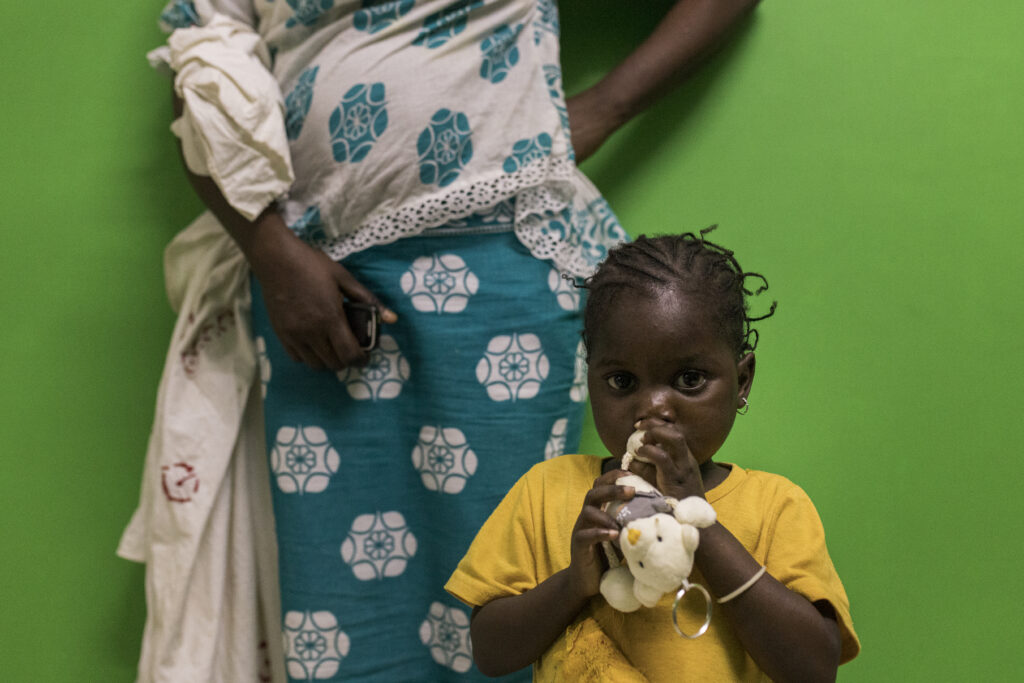
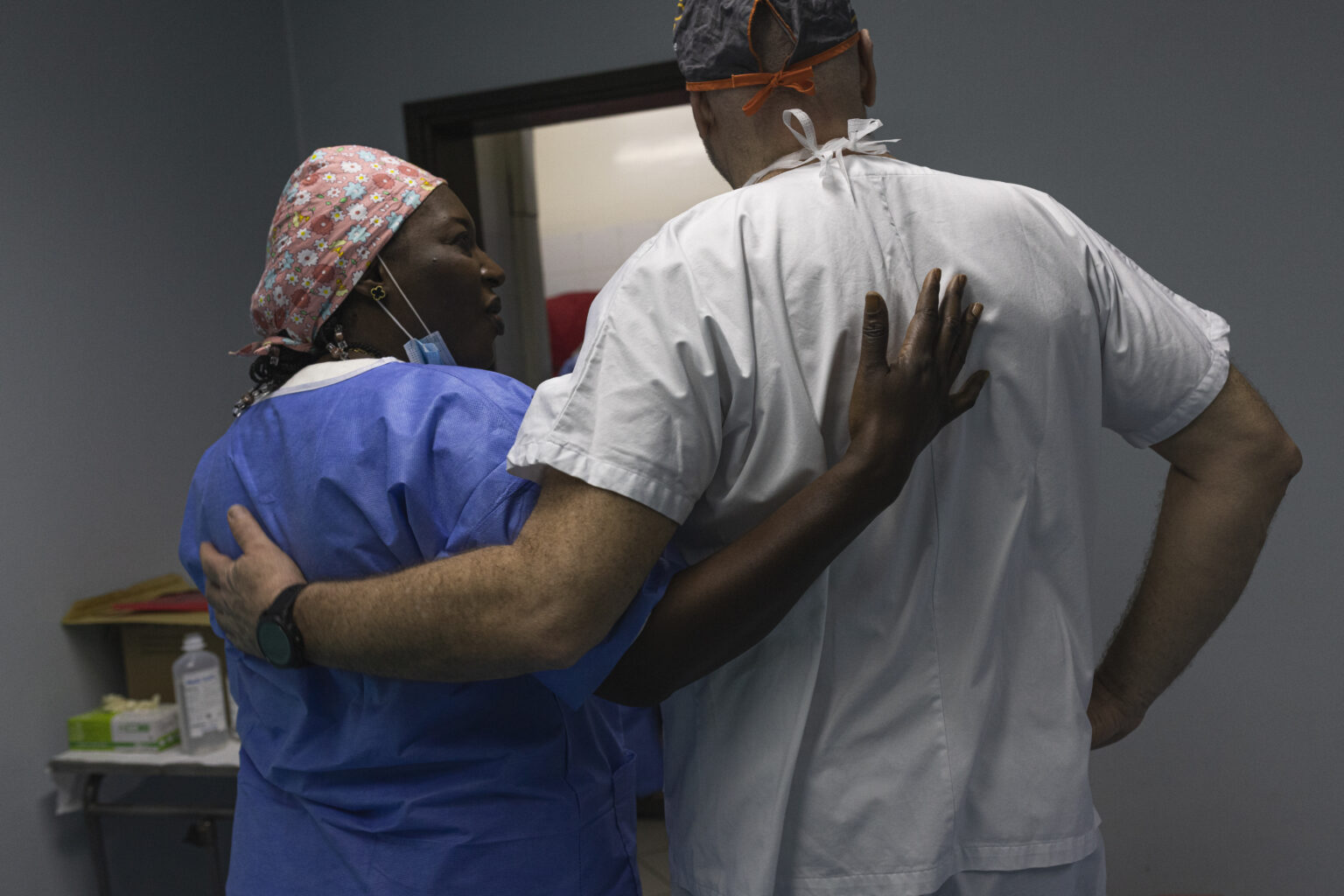

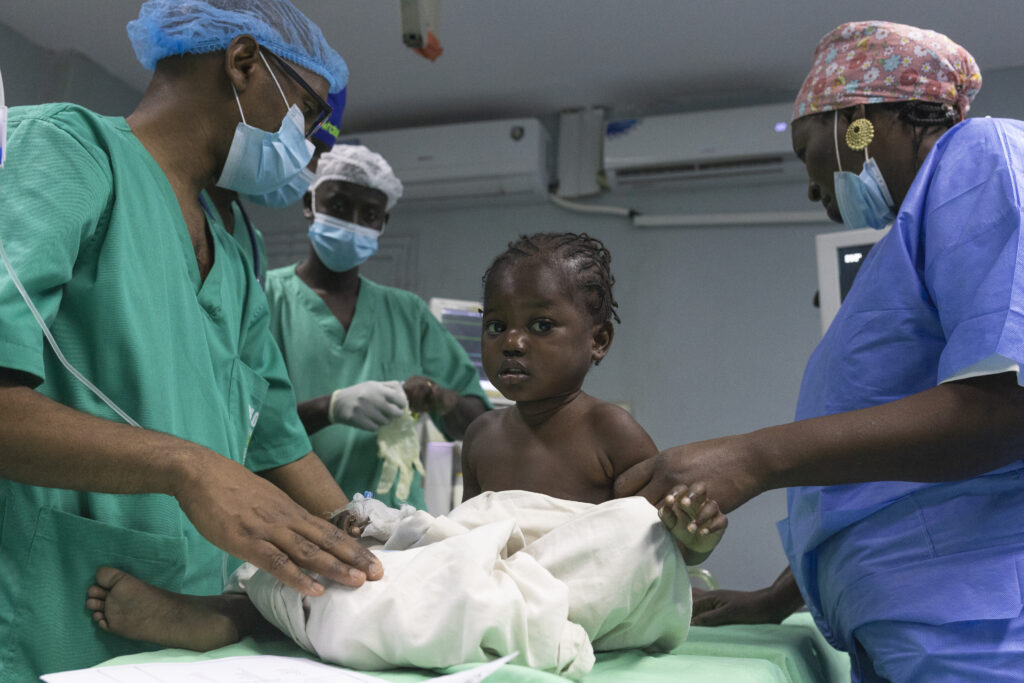
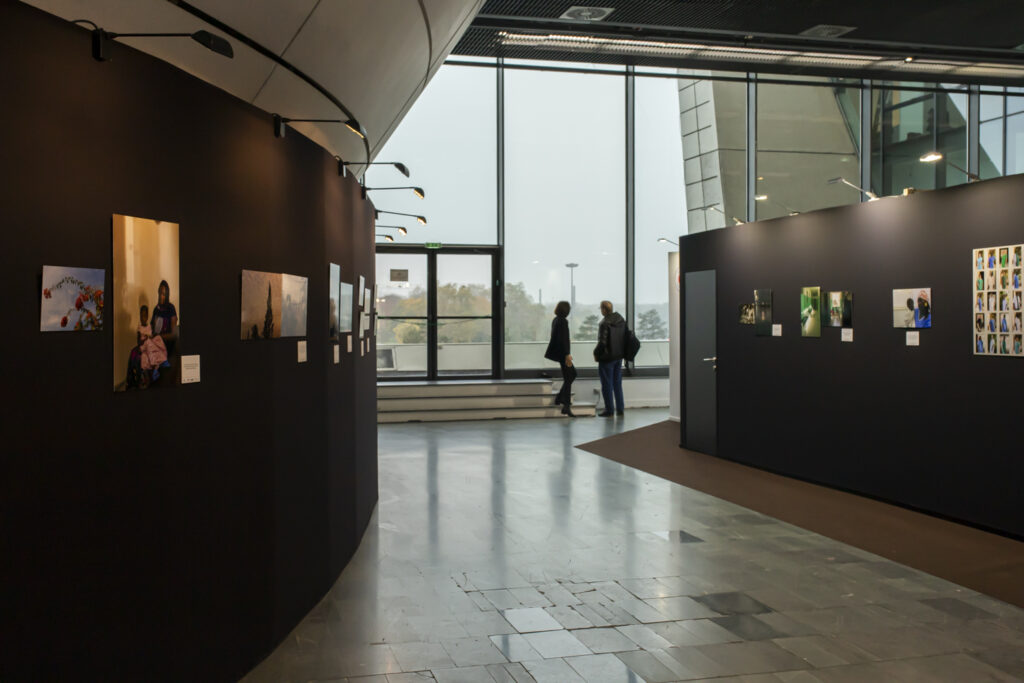
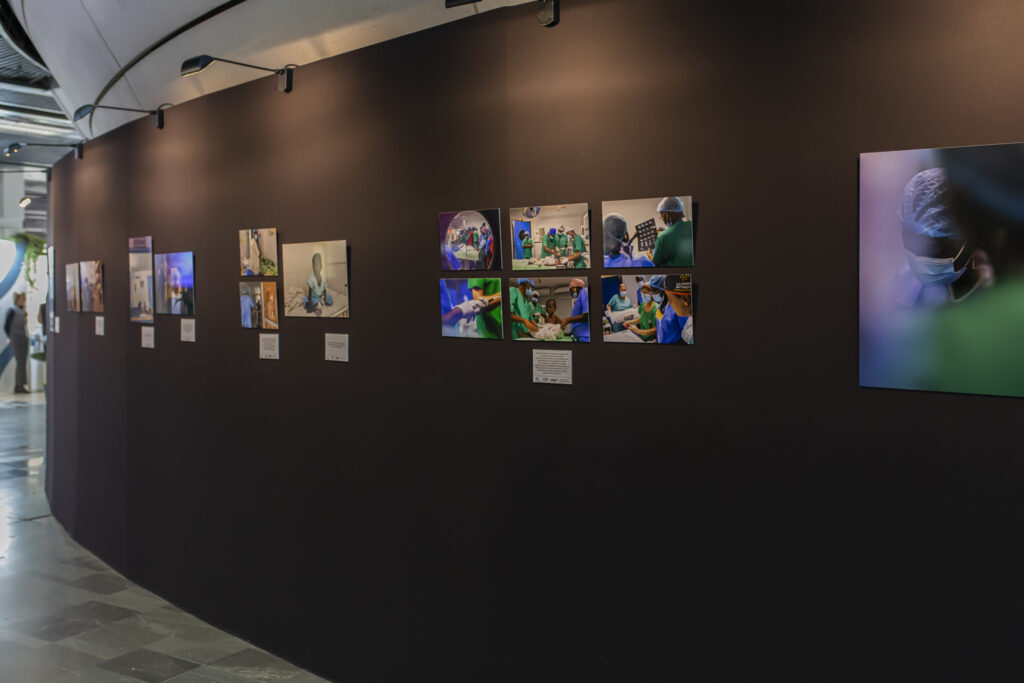
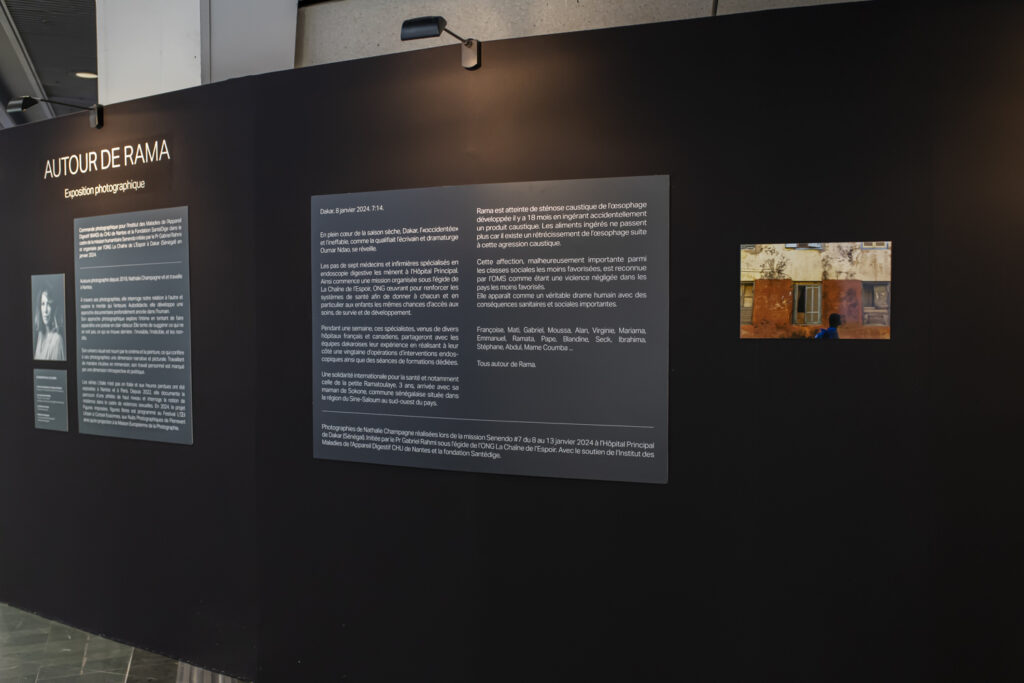
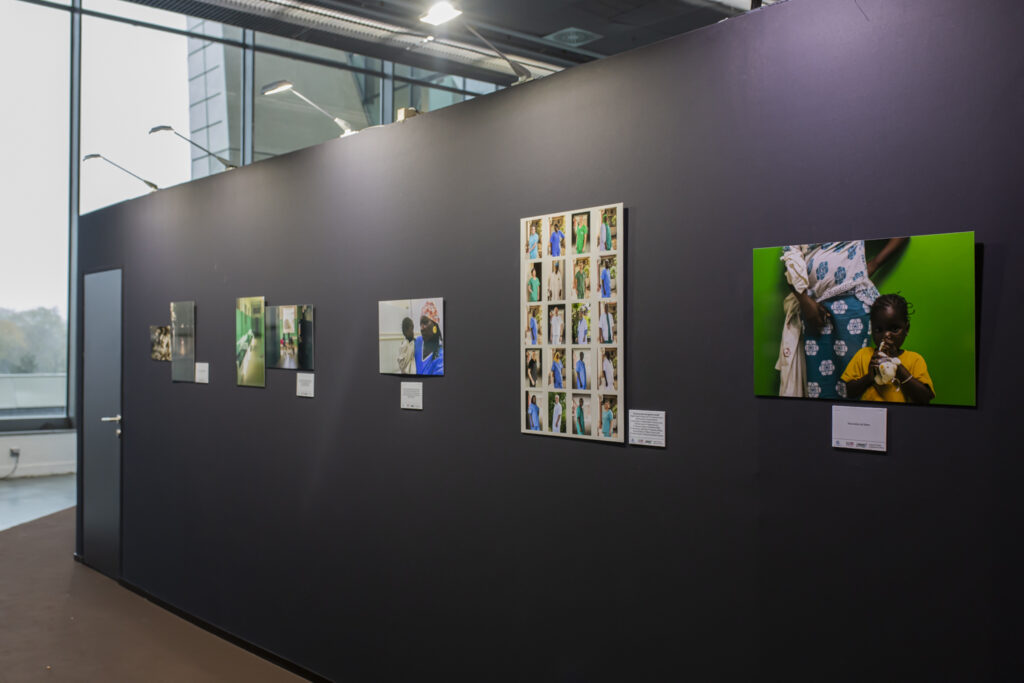
SENENDO Project
Photographic Documentary
Thanks to the support of SantéDige Foundation sponsors, Nantes-based photographer Nathalie Champagne followed the Senendo humanitarian mission in Dakar, Senegal, for one week.
These missions, initiated by Prof. Gabriel Rahmi under the aegis of the NGO La Chaîne de l’Espoir, aim to assemble a team of digestive endoscopy specialists to share their expertise with local teams, performing around twenty procedures per week alongside them, as well as conducting dedicated training sessions.
At the Institute of Digestive Diseases – SantéDige, Prof. Emmanuel Coron, PU-PH, participates regularly in these missions.
To highlight the work of caregivers and Franco-Senegalese solidarity, the documentary “Around Rama” focuses on the care journey of a young girl, Ramatoulaye, who developed a caustic esophageal stenosis 18 months ago after accidentally ingesting a caustic substance. Food can no longer pass through her esophagus due to the narrowing caused by this injury. This condition is recognized by the WHO as a form of neglected violence in low-income countries.
In 2024, this documentary work was exhibited at Nantes University Hospital as well as at the Palais des Congrès, Porte Maillot in Paris, during the VidéoDigest Congress.